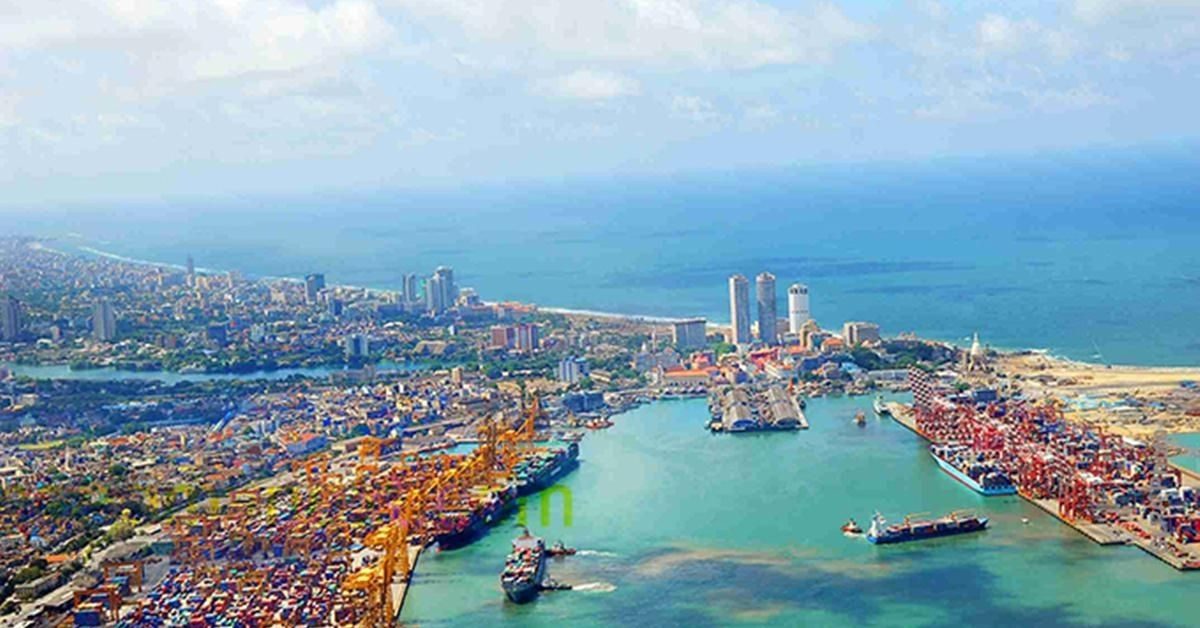The Sri Lankan Supreme Court’s determination on the proposed Colombo Port City Economic Commission Bill will be placed before the parliament on May 18, paving way for the legal act to establish the Commission, with an amendment in accordance with the judiciary’s verdict. The Supreme Court conveyed its decision to Speaker Mahinda Yapa Abeywardena, who will discuss with party leaders on May 18 on fixing a date to debate the Bill.
The Bill provides for the establishment of a Commission empowered to grant registrations, licenses, authorisations, and other approvals to carry on businesses and other activities in the Special Economic Zone (SEZ) to be established within the Colombo Port City. Several petitions were filed in the SC challenging the Bill on grounds that some of its clauses are inconsistent with the Constitution. A high-powered five-member Commission to administer the Port City will be set up after the Bill is approved by Parliament.
While the government stressed the need for a powerful commission to attract foreign investments, some of the petitioners stated that the setting up of a separate commission is unconstitutional and the zone would become a ‘Chinese Colony’.
Additional Solicitor General, appearing for the Attorney General’s Department, informed the Supreme Court that the Government had decided to add several amendments to the Bill at the Parliamentary Committee stage. The Additional Solicitor General presented the amendments to the five-judge bench via a document and said that the proposed Bill does not reduce the powers of regulators, such as the Central Bank.
Chief Justice Jayantha Jayasuriya making short remarks at the end of the submissions said the Bill does not seek to give concessions directly to investors and that the Port City Commission will be required to get tax holidays approved by the Cabinet and these will also be submitted to Parliament.
The Supreme Court ruling will open the pathway for the government to take required steps to modify the bill if the Supreme Court rules any of its clauses are in contravention of the Constitution. The court will also decide if the bill could be passed by a simple majority or a two-thirds majority in parliament or further approval at a national referendum and/or approved by provincial councils is required.
The early passage of the Colombo Port City Commission new law governing a reclaimed extension to the capital’s central business district is vital for the economy as it would pave the way to sell 20 plots of land bringing about 5 billion US dollars of investment to Sri Lanka.
The Bill, titled Colombo Port City Economic Commission, was tabled in Parliament last week, outlining proposed laws for the $1.4 billion-Port City being built on reclaimed land at Colombo’s seafront. Three opposition parties, Samagi Jana Balawegaya (SJB), Janatha Vimukthi Peramuna (JVP) and United National Party (UNP), a foreign-funded NGO and some labour organizations have challenged the constitutional validity of the proposed legislation.
The Sri Lanka Podujana Peramuna (SLPP) government took effective steps to expedite the Port City project, which would attract $ 15 billion in investments, and emerge a leading business, retail, residential and tourist destination in South Asia. CHEC Port City Colombo, a joint venture with the state and China Harbour Engineering Corporation has 100 hectares of land ready for construction. In the next five-year strategic plan 20 plots in a total of 60 hectares of land adjacent to Colombo’s central business district have been identified for the pilot projects.
Colombo Port City Commission Bill envisages giving extensive powers to approve investments without going to the Board of Investments, give tax breaks and regulate businesses in the most far-reaching one-stop-shop designed so far. It is expected to address several problems in Sri Lanka’s ease of doing business indicators that had kept back foreign direct investments.
A spokesman for CHEC Port City Colombo said 40 out of 74 buildable plots of land are allocated for commercial development which will bring investments and business activities while 34 plots are for residential use. Out of 269 hectares reclaimed, China Harbour will get 113 hectares, 91 will be common areas vested in the government and the balance 60 odd hectares are land the government can sell and earn revenue.
In designing the Port City plan, significant emphasis was given to create a vibrant business hub district, because of its extension to the existing central business district of Colombo.
It is no secret that Sri Lanka’s current economic growth would not be sufficient to drive demand. Therefore, businesses had to be attracted to Phase One to drive activity. Sri Lanka is primarily seeking foreign investments through dollar inflows, but domestic businesses would also be allowed to buy land to gain a foothold within the Port City.
International trade, logistics operations, hospitality and tourism are considered natural strengths of Sri Lanka. The Port has identified ICT/ BPM, offshore banking, private equity, wealth management and investment banking as priority sectors, the CHEC spokesman stated.
However, all these plans for project implementation could only commence after the legal aspects are cleared in accordance with the Supreme Court decisions on the petition. Then the Port City Bill, as it is or with amendments, if any, could be proceeded with.
Colombo Port City Special Economic Zone (SEZ) is expected to create a conducive and competitive environment in attracting FDIs. Urban Development via SEZs is not unique to Sri Lanka and there are many successful SEZs in the world. SEZ’s have been a useful tool for developing nations to upgrade infrastructure, human capital and institutional frameworks and test out policies and their impact before they are selectively implemented outside the SEZ in the rest of the country.
Once the Commission Bill and other modalities are completed, Sri Lanka has the potential to offer market connections across the Middle East, East Africa and Asia-Pacific, with Port City offering access and opportunities for groups and corporate figures across all of these regions.
Source: IDN-InDepthNews







